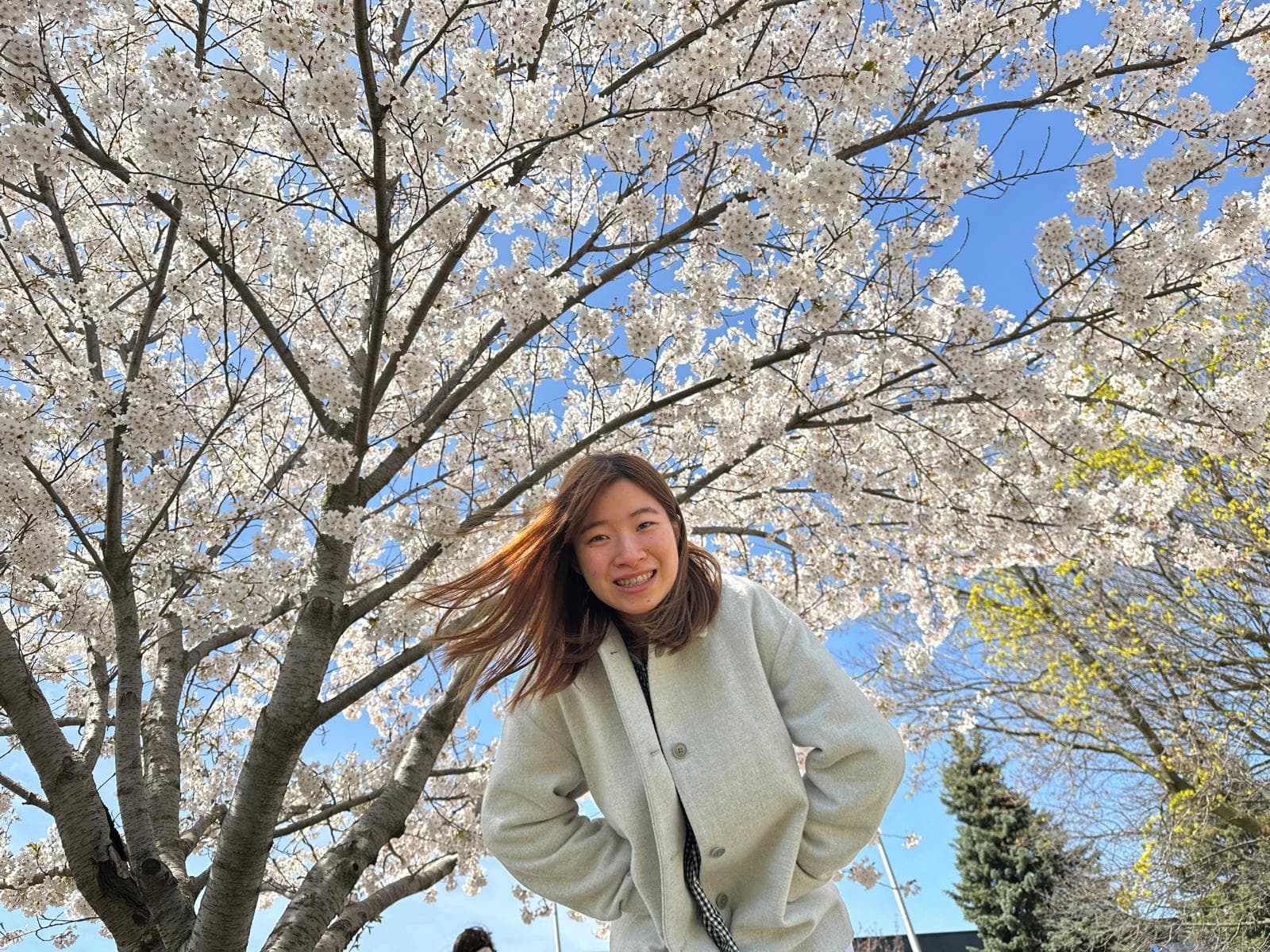Therapy for cancer survivorship

Treatment is over, yet relief has not arrived. Your body feels different. Your mind stays alert for every small symptom. People expect you to return to normal, but normal no longer fits. You feel grateful, but also drained and grieving. Life after cancer is complex in ways no one prepared you for. Therapy can help you make sense of what happened, manage what lingers, and rebuild a life that feels like yours again.
Understanding the cancer survivorship experience
When treatment ends but the struggle continues
Cancer survivorship begins at diagnosis and continues throughout your life, yet the time after treatment often brings the most emotional strain. During treatment, you had a plan, structure, and steady support. When treatment ends, that structure disappears. You are told to return to normal life while coping with physical changes, emotional swings, and the fear that every ache might mean something serious. The appointments stop, but the worry stays. Many people find this transition harder than they expected, even though it receives far less attention than the treatment stage.
The reality of survivorship in Canada
Each year, more than two hundred thousand Canadians are diagnosed with cancer, and nearly two in five Canadians will face cancer in their lifetime according to Canadian cancer projections 2024. More people are surviving because detection and treatment have improved, yet survivorship brings its own challenges. Research shows that most survivors continue to deal with physical changes after treatment, while many experience emotional struggles such as anxiety and depression as noted in cancer survivorship research. This shows a clear gap. We are doing better at treating cancer, but support after treatment has not kept pace. Survivors often face lingering effects and the ongoing work of rebuilding their identity after cancer.
Cancer survivorship in Canada
Sources: CMAJ 2024 and Fear of recurrence research.
The invisible burden of fear of recurrence
Fear of cancer returning is one of the most common and least supported struggles survivors face. Research shows that many survivors experience moderate to high levels of this fear, with younger people and women affected more often according to the fear of recurrence prevalence study. This fear is not simple worry. It can take over your thoughts, make everyday life harder, and leave you feeling alone. Medical appointments may trigger anxiety, yet you might also seek constant reassurance. Every small symptom can feel frightening. This emotional strain is real and deeply connected to the experience of having faced a life threatening illness.
Physical late effects that complicate recovery
Treatment saves lives, yet many survivors live with lasting physical effects. Chemotherapy can cause neuropathy, fatigue, and cognitive changes. Radiation may lead to heart concerns or tissue changes. Surgery can create scarring, swelling, or loss of function. Hormone treatments often bring significant body changes. These issues can appear long after treatment ends and can affect mood, comfort, and quality of life. Many survivors find that healing their body and mind takes far longer than expected.
The ripple effects of cancer survivorship
Identity and self perception
Cancer can change how you see yourself. Your body may look or feel different, and your sense of identity may feel unclear. Some people embrace the word survivor, while others want nothing to do with it. You may feel older than your age, or out of step with others your age. Rebuilding a sense of self after cancer often means asking new questions about who you are now and how much of your story you want to share.
Relationships and social dynamics
Cancer can strengthen some relationships and strain others. Friends may drift, partners may struggle with shifting roles, and dating can feel complicated. Fertility concerns, changes in intimacy, and fear of recurrence can affect how you connect with others. Many survivors feel isolated from people who cannot understand what they have lived through.
Work and financial challenges
Returning to work is often difficult. Fatigue, pain, or cognitive changes can make past roles hard to manage. Some employers help, others do not. Financial stress can continue long after treatment because of lost income, ongoing costs, or reduced work capacity. This pressure adds another layer to an already demanding recovery.
Existential questions and meaning
Facing cancer brings deep questions about life, purpose, and uncertainty. Some people find new meaning. Others feel angry, numb, or unchanged. Many experience both. The cultural push to stay positive can feel heavy when your experience is far more complex. You are allowed to feel however you feel without having to turn your suffering into a lesson.
How therapy addresses cancer survivorship challenges
Why specialized survivorship therapy helps
Life after cancer brings challenges that many people do not see, which is why working with a therapist who understands survivorship can make such a difference. They know that the end of treatment is often the beginning of the real emotional work. They recognize that fear of recurrence is a rational response, that cognitive changes are real, and that your sense of identity may need rebuilding. A skilled survivorship therapist does not push positivity or expect you to feel grateful. They create space for grief, anger, fear, and exhaustion while helping you manage symptoms, strengthen relationships, and build a life that feels meaningful again.
Core therapeutic goals in survivorship
Survivorship therapy focuses on the challenges that continue long after treatment ends. You learn ways to manage fear of recurrence so it no longer controls your life. You process the trauma of diagnosis and treatment, grieve what has changed, and begin rebuilding a life that fits who you are now. Therapy helps you manage late effects like fatigue, pain, and cognitive shifts through practical strategies that support daily functioning. You also work on communication, intimacy, and relationship changes. A key part of this work is exploring identity and meaning so you can move forward with clarity and confidence.
Evidence-based therapeutic approaches
Cognitive behavioural therapy
CBT is one of the most well studied therapies for cancer survivors. It helps reduce anxiety, depression, and fear of recurrence by teaching you to notice unhelpful thoughts and replace them with steadier, more realistic ones. You learn practical skills for managing fatigue, insomnia, and medical anxiety. CBT is especially helpful for fear of recurrence, supporting you in telling the difference between healthy awareness and overwhelming worry. These benefits are supported by strong research including the CBT meta analysis.
Acceptance and commitment therapy
ACT helps you live meaningfully even with uncertainty or lingering symptoms. Instead of trying to erase difficult thoughts, ACT teaches you to make room for them while still moving toward what matters. You learn mindfulness skills to step back from fear of recurrence and values based strategies to guide your choices. Research shows ACT improves mood, reduces fear, and supports quality of life, as seen in the ACT systematic review.
Trauma focused therapy
Many survivors carry trauma from diagnosis, treatment, and medical complications. Trauma focused therapies like EMDR or trauma focused CBT help you process these memories so they feel less threatening. This work reduces intrusive thoughts, fear of medical settings, and the sense of always being on alert, allowing you to move through life with greater ease.
Supportive group therapy
Group therapy offers connection with people who truly understand survivorship. Sharing experiences reduces isolation, builds hope, and encourages healthier coping. You can talk about fears and changes in a space where others relate without judgment. Research shows group therapy lowers distress and improves quality of life by offering community, validation, and mutual support.
The survivorship therapy journey
Initial assessment
Early sessions focus on understanding your survivorship needs. You and your therapist explore fear of recurrence, physical changes, trauma, mood, identity shifts, and relationship concerns. The goal is to identify what feels most urgent and create a plan that feels safe and manageable. You learn that what you are facing is a normal part of survivorship, not a personal failure.
Active therapeutic work
This stage focuses on the core issues that brought you to therapy. You might challenge catastrophic thoughts, practise exposure for medical anxiety, process trauma, work through grief, or learn skills for managing fatigue and communication. Some sessions feel like progress, others feel slow. Both are part of the healing process.
Integration and maintenance
As therapy continues, your symptoms become more manageable and your confidence grows. You use your skills to handle triggers like scan dates, anniversaries, or new physical changes. Many people shift to occasional sessions for ongoing support. Therapy becomes a steady place you can return to when survivorship brings new challenges.
Find a therapist for cancer survivorship
Choosing the right therapist matters. Each province in Canada has its own regulations, which is why working with a recognized professional can make a real difference in your care. Stellocare takes the uncertainty out of the process by listing only verified therapists you can trust.
The right therapist for you
No therapists found with these specialties in Ontario.
Try selecting a different province.Canadian resources and strategies
Canadian survivorship support
Canadian Cancer Society support services
The Canadian Cancer Society offers comprehensive support including a Cancer Information Helpline (1-888-939-3333), online community (CancerConnection.ca), lodges near treatment centres, and a Community Services Locator database with over 4,500 cancer-related services nationwide. Access CCS services.
Canadian Partnership Against Cancer
National organization supporting survivorship initiatives across Canada. Provides resources, research, and advocacy for people living with cancer. Focus on improving survivorship care and addressing equity for underserved populations. Visit Partnership resources.
Young Adult Cancer Canada
Supports young Canadians diagnosed with cancer. Offers online community, retreats, and annual survivor conference addressing unique challenges facing young adult survivors including fertility, career disruption, and dating. Connect with YACC.
Financial support programs
Cancer creates financial burden even in Canada. CPP Disability Benefits may be available. Provincial drug programs like Ontario's Trillium Drug Program help with prescription costs. Some charitable organizations offer transportation assistance and emergency financial aid. Financial resources.
Self-management strategies
Managing fear of recurrence
- Schedule worry time: designate 15 minutes daily to acknowledge fears. When worries arise outside this time, postpone them. This contains anxiety rather than letting it pervade your day.
- Distinguish productive from unproductive worry: productive worry leads to action (scheduling an appointment); unproductive worry just loops anxiously. When fear arises, ask: is there action I can take? If yes, do it. If no, practise letting go.
- Challenge catastrophic thoughts: when you think "this headache means brain metastases," challenge with evidence. What else could it be? Have I had headaches before that weren't cancer?
Coping with late effects
- Energy management and pacing: for cancer-related fatigue, alternate activity with rest, break tasks into smaller chunks, prioritize what matters most. Don't push through until you crash.
- Cognitive strategies for "chemo brain": use external memory aids (lists, phone reminders, calendars), reduce multitasking, minimize distractions when concentrating.
- Pain management techniques: for chronic pain, combine medical treatment with psychological strategies like mindfulness, distraction techniques, gentle movement, and pacing activities.
Navigating relationships
- Be direct about needs: people want to help but often don't know how. Specific requests work better than hoping people will figure it out.
- Set boundaries with insensitive comments: it's okay to shut down unhelpful input. "I'm not looking for advice right now" is a complete sentence.
- Find your survivor community: online or in-person support groups connect you with people who get it. Shared experience reduces isolation.
Questions about cancer survivorship therapy
When should I start therapy for survivorship?
There is no wrong time to begin. Some people start during treatment, others begin after it ends. The transition into survivorship is often the most vulnerable stage, and early support can prevent difficulties from becoming overwhelming. Therapy can also help years later when old fears return or new physical changes appear.
Will therapy help with physical late effects?
Therapy cannot remove physical symptoms, but it can make them much easier to manage. CBT and other approaches reduce distress related to pain, fatigue, and cognitive changes. You learn pacing, coping skills, and strategies that improve sleep, focus, and daily functioning even when symptoms persist.
How do I find a therapist who understands survivorship?
Look for therapists who mention cancer survivorship, chronic illness, or medical trauma in their practice. Many psychologists and social workers with health psychology or hospital experience are familiar with these issues. When reaching out, ask directly if they have worked with cancer survivors so you know they understand your needs.
Is it normal to struggle emotionally years after treatment?
Yes. Many survivors continue to feel fear, sadness, or anxiety long after treatment ends. New symptoms can appear, scan anxiety can increase, and life events may bring emotions back to the surface. Ongoing struggle does not mean you are failing. It simply means survivorship is an ongoing process.
What if I feel guilty about struggling when I survived?
Survivor guilt is common. You may feel you should be grateful or that you have no right to struggle, but these reactions are normal and human. You can appreciate being alive and still find the aftermath difficult. Therapy helps you understand this guilt and make space for your full emotional experience.
Related concerns
References
- Brenner, D. R., Gillis, J., Demers, A. A., et al. (2024). Projected estimates of cancer in Canada in 2024. CMAJ, 196(18), E615-E623. Retrieved from https://www.cmaj.ca/content/196/18/E615
- Canadian Institutes of Health Research. (2024). Beyond Treatment: Advancing Cancer Survivorship Team Grants. Retrieved from https://cihr-irsc.gc.ca/e/54465.html
- Luigjes-Huizer, Y. L., Tauber, N. M., Humphris, G., et al. (2022). What is the prevalence of fear of cancer recurrence in cancer survivors and patients? Psycho-Oncology, 31(6), 879-892. Retrieved from https://pmc.ncbi.nlm.nih.gov/articles/PMC9321869/
- Simard, S., Thewes, B., Humphris, G., et al. (2013). Fear of cancer recurrence in adult cancer survivors: a systematic review. Journal of Cancer Survivorship, 7(3), 300-322.
- Cochrane, A., Woods, S., Dunne, S., & Gallagher, P. (2021). Canadian Resources for Cancer Survivors' Transition: A Scoping Review. Current Oncology, 28(3), 2011-2028. Retrieved from https://pmc.ncbi.nlm.nih.gov/articles/PMC8293069/
- Wang, S., Xu, Q., Zhang, Q., et al. (2022). Cognitive behavioral therapy for anxiety and depression in cancer survivors: a meta-analysis. Scientific Reports, 12, 21188. Retrieved from https://www.nature.com/articles/s41598-022-25068-7
- Johns, S. A., Von Ah, D., Brown, L. F., et al. (2020). Acceptance and commitment therapy in adult cancer survivors: a systematic review. Journal of Cancer Survivorship, 14, 912-932. Retrieved from https://link.springer.com/article/10.1007/s11764-020-00938-z
- Lagergren, P., & Schandl, A. (2023). Mitigating long-term adverse events from cancer treatment. Nature Reviews Clinical Oncology, 20, 527-543.
- Canadian Cancer Society. How we can help. Retrieved from https://cancer.ca/en/living-with-cancer/how-we-can-help
- Canadian Partnership Against Cancer. Survivorship resources. Retrieved from https://www.partnershipagainstcancer.ca/topics/survivorship/summary/
About Stellocare
Stellocare is a Canadian platform where you can find the best fit therapist for you. Search the right thperaists now by asking our AI, browsing our list, or finding our social workers for personal referral.

Pantea Ahmadian
Registered Psychotherapist (Qualifying) (ON)

Kate MacDonald
Registered Psychologist (AB)

Adrienne Na
Registered Psychotherapist (Qualifying) (ON)

Sze Nga Cecilia Au Yeung
Registered Social Worker (ON)

Harpreet Sahota
Registered Social Worker (ON)

Jess McKenzie
Canadian Certified Counsellor

Rex Cheung
Registered Social Worker (ON)

Michelle Lehoux
Registered Psychotherapist (Qualifying) (ON)

Christine Griffiths
Registered Psychotherapist (ON)

Delia Petrescu
Registered Psychotherapist (ON)

Tiphanie Routier
Thérapeute en relation d'aide (QC)

Lisa Davis
Registered Social Worker (ON)

Nicola Wolters
Registered Psychotherapist (Qualifying) (ON)

Karen Liivoja
Registered Psychotherapist (Qualifying) (ON)

Victoria Nyman
Registered Psychotherapist (Qualifying) (ON)

Veronica Kozak
Registered Psychotherapist (Qualifying) (ON)

Chris Graham
Registered Psychologist (AB)

Shani Ellis-Alman
Registered Social Worker (ON)

Kellie Thomas
Registered Psychotherapist (ON)

Vrushalee Nachar
Registered Psychotherapist (ON)

Pantea Ahmadian
Registered Psychotherapist (Qualifying) (ON)

Kate MacDonald
Registered Psychologist (AB)

Adrienne Na
Registered Psychotherapist (Qualifying) (ON)

Sze Nga Cecilia Au Yeung
Registered Social Worker (ON)

Harpreet Sahota
Registered Social Worker (ON)

Jess McKenzie
Canadian Certified Counsellor

Rex Cheung
Registered Social Worker (ON)

Michelle Lehoux
Registered Psychotherapist (Qualifying) (ON)

Christine Griffiths
Registered Psychotherapist (ON)

Delia Petrescu
Registered Psychotherapist (ON)

Tiphanie Routier
Thérapeute en relation d'aide (QC)

Lisa Davis
Registered Social Worker (ON)

Nicola Wolters
Registered Psychotherapist (Qualifying) (ON)

Karen Liivoja
Registered Psychotherapist (Qualifying) (ON)

Victoria Nyman
Registered Psychotherapist (Qualifying) (ON)

Veronica Kozak
Registered Psychotherapist (Qualifying) (ON)

Chris Graham
Registered Psychologist (AB)

Shani Ellis-Alman
Registered Social Worker (ON)

Kellie Thomas
Registered Psychotherapist (ON)

Vrushalee Nachar
Registered Psychotherapist (ON)

